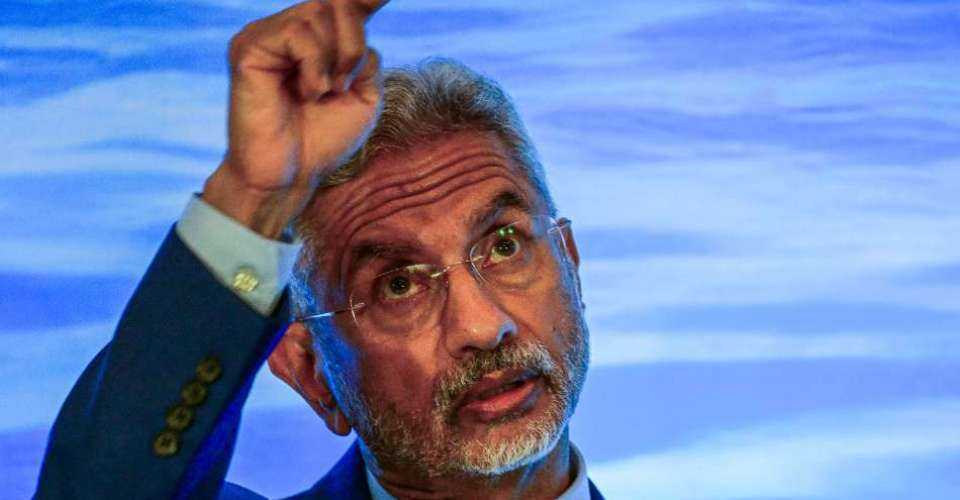 Indian foreign minister S. Jaishankar’s recent remarks on the situation in riot-hit Manipur state while addressing the Indian community in the South Korean capital Seoul must be understood from political as well as geo-strategic perspectives.
Indian foreign minister S. Jaishankar’s recent remarks on the situation in riot-hit Manipur state while addressing the Indian community in the South Korean capital Seoul must be understood from political as well as geo-strategic perspectives.
“Distressing is a very mild word … for what is happening in Manipur,” he told the Indian diaspora on March 5. It’s been 10 months since the violence began in the northeastern state bordering crisis-ridden Myanmar. Officially 219 people have been killed so far, most of them Christians.
The pro-Hindu Bharatiya Janata Party (BJP) government in the state has dubbed it an ethnic conflict, but Christian leaders have accused it of siding with the majority Hindu Meitei community which is at odds with the tribal Christian Kuki-Zo people.
“In terms of … how did this happen? How did the government let this happen? You know there cannot be anybody who would not regret what is happening there,” the foreign minister said.
He sounded critical of the BJP government in Manipur. But Jaishankar is a member of the same party and a federal minister who has Prime Minister Narendra Modi’s ears.
Manipur was one of multiple questions about India raised by the diaspora, and, in all probability, Jaishankar had the nod from the Prime Minister’s Office for making those remarks.
Before coming to Manipur, the minister dwelt on how the Modi government brought the mere talk about “Look East and Act East” — first devised in 1991 — into actual practice and implemented several projects that benefit the entire northeast region.
“If you look at how difficult it was to travel, if you see the sort of level of business, the attention given, the resources given, it [the Manipur riot] was actually very disturbing. And that has been one of the changes of the last 10 years,” he asserted.
He then stressed how he felt that “in many respects, the northeast itself can act as a bridge, but it has both a cultural side to it and a physical contiguity side too.”
His explanation of what happened there was “the close intermingling of communities” leading to “this degree of violence, which becomes very difficult to head off.”
The foreign minister was well aware that Korea has a substantial Christian population and the ethnic conflict in Manipur could draw criticism of the BJP governments in both New Delhi and in Manipur.
Tribal Christians, including Nagas and Kukis, form around 41 percent of Manipur’s 3.6 million people. They primarily inhabit the hill districts.
The Meiteis make up some 53 percent of the population and reside in the Imphal Valley.
And then there are about 6,000 refugees from Myanmar taking shelter in the state.
Analyst Ashutosh Talukdar, who is based in the northeastern state of Assam, observed that a foreign minister “would avoid making any remark on internal or domestic matters, leave aside a disturbing situation, on foreign soil.”
But Jaishankar could not have avoided northeast India as it is a bridge to neighboring countries such as Myanmar and other Southeast and East Asian countries.
New Delhi is well aware that violence and instability in Manipur can harm its long-term strategic interests and derail the “Look East and Act East” policy.
The minister’s remarks thus have to be viewed through this perspective.
The situation in Manipur has not only embarrassed Modi and the BJP but may also derail the progress achieved since 2014, when Modi became prime minister, in developing economic cooperation and strategic relationships with countries in the wider Indo-Pacific region.
The Modi dispensation is keen on moving forward at bilateral, regional, and multilateral levels to enhance political, economic, cultural and people-to-people relations in the region.
Modi’s critics point out that for four months after the riot broke out on May 3 last year, he did not utter a word and broke his silence only in August after a video went viral on social media showing two Christian Kuki women being sexually assaulted and paraded naked in the streets of Manipur.
Federal Home Minister Amit Shah told the Indian Parliament on Aug. 9 that, “people crossing over from Myanmar” were responsible for the distressing situation in the state.
Even Jaishankar echoed him when he said that the open border with Myanmar was one of the issues. “We have decided now to suspend that [open border] and, actually, in a way, harden the border situation,” he explained.
The bilateral Free Movement Regime allowed people from India and Myanmar to travel up to 16 kilometers into each others’ territory without travel documents. That will stop now.
But Jaishankar’s utterances in Korea must also be seen as a late application of balm on the festering wounds of Manipur, ahead of a general election this summer.
Modi is seeking a third term as prime minister and Manipur remains a weak spot for him.
The prime minister avoided campaigning in neighboring Mizoram during the state election in November-December 2023. But can he afford to skip the northeastern states now?
We “would like to see law and order return,” Jaishankar said while adding, “This is not the India, and certainly not the northeast, which anybody is hoping for.”
source : UCA News
